01 - Five Faces of Oppression in Ayesha Baqir's Beyond the Fields...
http://dx.doi.org/10.31703/gpr.2024(IX-I).0110.31703/gpr.2024(IX-I).01 Published : Mar 2024
-
This research article analyses Ayesha Baqir’s Beyond the Fields (2019) using Iris Young’s model of ‘Five Faces of Oppression’. Baqir’s novel highlights the oppressive ideology that forces women to be subservient to male hegemonic values, traditions, and honour. The novel is evaluated to demonstrate the ways through which men exert their powers over women. Young's mode... Details
-
Exploitation, Marginalization, Powerlessness, Cultural Imperialism, Violence
-
(1) Abdur Rauf
Lecturer, Department of English Language and Literature, Gomal University, Dera Ismail Khan, KP, Pakistan.
(2) Ahmad Naeem
Assistant Professor, Department of English Language and Literature, Gomal University, Dera Ismail Khan, KP, Pakistan.
(3) Khan Sardaraz
Registrar, University of Science and Technology, Bannu, KP, Pakistan.
02 - Power Struggle liberating Class Consciousness: A Marxist Analysis of the Novel "...
http://dx.doi.org/10.31703/gpr.2024(IX-I).0210.31703/gpr.2024(IX-I).02 Published : Mar 2024
-
The study is an exploration of Osman Hameed’s novel "The Verdict" through a Marxist lens. The study aims to investigate the conflict between the proletariat and the bourgeois class, as well as the power struggle between them, which results in class consciousness. The research follows a transformative paradigm.The research is qualitative in nature. We analyze the textual lines using a Marxist... Details
-
Class Struggle, Class Consciousness, Marxism, Power Politics, The Verdict
-
(1) Amara Khan
Associate professor, Department of English, Lahore College for Women University, Lahore, Punjab, Pakistan.
03 - Dynamics of Malaysia-Pakistan Relations: Historical Perspective and Contemporary...
http://dx.doi.org/10.31703/gpr.2024(IX-I).0310.31703/gpr.2024(IX-I).03 Published : Mar 2024
-
The relations between Malaysia and Pakistan have historically been characterized by cultural affinity, economic cooperation, and diplomatic collaboration. Rooted in shared historical ties and cultural connections, these two nations have fostered bilateral relations that have strengthened over time. However, in the contemporary context of the 21st century, both countries face a set of challenges th... Details
-
Malaysia, Pakistan, Bilateral Relations, Historical Perspective, Contemporary Challenges
-
(1) Arif Hussain
Undergraduate, Department of Politics and International Studies, Karakoram International University, Gilgit-Baltistan, Pakistan.
(2) Ghulam Mehdi
Undergraduate, Department of Politics and International Studies, Karakoram International University, Gilgit-Baltistan, Pakistan.
(3) Muhammad Ismail
Visiting Lecturer, Department of Politics and International Studies, Karakoram International University, Gilgit-Baltistan, Pakistan.
04 - Stylistic Analysis of Islamophobic Features in Selected Speeches of Ex-Prime Min...
http://dx.doi.org/10.31703/gpr.2024(IX-I).0410.31703/gpr.2024(IX-I).04 Published : Mar 2024
-
Stylistics comprises semantic, syntactic, and lexical analysis. Following the method of analysis outlined by Fairclough (1993), this study provides a theoretical analysis of former Prime Minister Imran Khan's Islamophobia-focused speeches in his speeches to the Organization of Islamic Conference and UN General Assembly. Through this analysis, the study aims to reveal the underlying reasons for Pri... Details
-
Stylistics, Analytical Techniques, Islamophobia, PM Imran Khan, U.N.G.A., Figurative Language, Semantic Features, Persuasive Elements.
-
(1) Noor Ul Ain
Lecturer, Department of Humanities and Social Sciences, Khwaja Fareed University of Engineering & Information Technology (KFUEIT), Rahim Yar Khan, Punjab, Pakistan.
(2) Sehrish Ayaz
M.Phil Scholar, Department of Humanities and Social Sciences, Khwaja Fareed University of Engineering & Information Technology (KFUEIT), Rahim Yar Khan, Punjab, Pakistan.
(3) Muhammad Anwar Farooq
Assistant Professor, Department of Humanities and Social Sciences, Khwaja Fareed University of Engineering & Information Technology (KFUEIT), Rahim Yar Khan, Punjab, Pakistan.
05 - Facts and Figures: Minorities, Human Rights Violation in Pakistan, and Governmen...
http://dx.doi.org/10.31703/gpr.2024(IX-I).0510.31703/gpr.2024(IX-I).05 Published : Mar 2024
-
In the instant Article, we will analyze the reports, articles, and surveys conducted in Pakistan regarding Human Rights Violation to the Minorities groups, although Pakistan is known for its liberal thoughts and cultural diversity, some extremist groups all over Pakistan target minority group some time due to religious sentiments, some time due to political reason and some time for their own perso... Details
-
Pakistan, Minorities, Human Rights Violations, Religious Persecution, Discrimination, Blasphemy Laws, Sectarian Violence, Forced Conversions, Targeted Killings, Legal Reforms, Law Enforcement.
-
(1) Badar Jamil
PhD Scholar, Department of Law, University of Karachi, Sindh, Pakistan.
(2) Muhammad Tahir
Associate Professor, Department of Law, University of Karachi, Sindh, Pakistan.
06 - Conflict Resolution vs. Conflict Aggravation: Role of Pakistani Newspapers in Po...
http://dx.doi.org/10.31703/gpr.2024(IX-I).0610.31703/gpr.2024(IX-I).06 Published : Mar 2024
-
This study discovers the framing of civil-military conflicts in Pakistani newspapers from 2008 and 2018. By examining editorial coverage in both English and Urdu publications, the study examines the role of the press in either resolving or aggravating civil-military conflicts. Findings reveal that English papers contributed more to the aggravation of tensions between civilian and military institut... Details
-
Conflict Resolution, Conflict Aggravation, Civil-military Conflicts, Pakistani Print Media, Framing
-
(1) Hassan Siddique
Deputy Director (Communication), Punjab Green Development Program, Punjab, Pakistan.
(2) Shazia Ismail Toor
Assistant Professor, School of Communication Studies, University of the Punjab, Lahore, Punjab, Pakistan.
(3) Zaeem Yasin
Associate Professor, Department of Mass Communication, Lahore College for Women University, Lahore, Punjab, Pakistan.
07 - Social Media Usage for Sharing Political Information among University Students i...
http://dx.doi.org/10.31703/gpr.2024(IX-I).0710.31703/gpr.2024(IX-I).07 Published : Mar 2024
-
Social media is an important channel to share information as it provides free media platform to its users to exchange political information within online community. Users besides other fields also involve in sharing political information to educate and motivate others towards real political issues. To understand the effectiveness of political communication via social media feedback is an essential... Details
-
Social Media, Share political Information. University Students
-
(1) Liaquat Umrani
Lecturer, Department of Media and Communication Studies, University of Sindh, Jamshoro, Sindh, Pakistan.
(2) Abdul Razaque Chhachhar
Assistant Professor, Department of Media and Communication Studies, University of Sindh, Jamshoro, Sindh, Pakistan.
(3) Muhammad Qasim Nizamani
Associate Professor, Department of Media and Communication Studies, University of Sindh, Jamshoro, Sindh, Pakistan.
08 - Empowering Opinions: The Role of Political Parties in Enhancing Political Partic...
http://dx.doi.org/10.31703/gpr.2024(IX-I).0810.31703/gpr.2024(IX-I).08 Published : Mar 2024
-
This study explores the crucial role of political parties in enhancing political participation in Gilgit-Baltistan, a region characterized by unique socio-political dynamics and historical marginalization within Pakistan. The strategies and activities of various political parties, this research seeks to understand how they influence political engagement among the local population. This study exami... Details
-
Political Participation Political Parties, Gilgit-Baltistan, Civic Engagement Democratic Governance
-
(1) Asif Mehdi
Visiting Lecturer, Department of Politics and International Studies, Karakoram International University, Gilgit, Gilgit Baltistan, Pakistan.
(2) Muhmmad Ismail
Visiting Lecturer, Department of Politics and International Studies karakorum international University Gilgit, Gilgit Baltistan, Pakistan.
(3) Kousar Ali
Lecturer, Department of International Relations, Superior University Lahore, Punjab, Pakistan.
09 - Post-Merger Political and Social Dynamics: Fata's Shifting Paradigm in Pakistan ...
http://dx.doi.org/10.31703/gpr.2024(IX-I).0910.31703/gpr.2024(IX-I).09 Published : Mar 2024
-
This research analyzes the perceptions and experiences of individuals from the Federally Administered Tribal Areas (FATA) following its merger with Khyber Pakhtunkhwa (KP). The study employs a mixed approach, collecting primary data through random sampling from various districts of FATA, including students, teachers, social activists, politicians, and government servants. The analysis reveals a di... Details
-
FATA, KP, Merger, reforms, Local Government, Administration, Police, Judiciary, Security, TTP
-
(1) Adnan Khan
Graduate, Department of International Relations, Government College University, Faisalabad, Punjab, Pakistan.
(2) Qasim Shahzad Gill
PhD, Johnson Shoyama Graduate School of Public Policy, University of Saskatchewan, Saskatoon, Saskatchewan, Canada.
(3) Ghulam Mustafa
Associate Professor, Department of International Relations, Government College University, Faisalabad, Punjab, Pakistan.
10 - Women's Empowerment in Pakistan ...
http://dx.doi.org/10.31703/gpr.2024(IX-I).1010.31703/gpr.2024(IX-I).10 Published : Mar 2024
-
In the light of globalization and technical breakthroughs, this study examines the complex history, current issues, and potential future directions of women's empowerment in Pakistan. This article starts with the moral obligation and societal advantages of gender equality before diving into the historical viewpoints of women's empowerment in Pakistan highlighting significant individuals and occasi... Details
-
Empowerment, Opportunities, Gender Equality, Technology, Education, Sustainable Development
-
(1) Tooba Zulfiqar
M. Phil Scholar, Department of Pakistan Studies, National University of Modern Languages Islamabad, Pakistan.
11 - Blasphemy in the Electoral Politics of Pakistan ...
http://dx.doi.org/10.31703/gpr.2024(IX-I).1110.31703/gpr.2024(IX-I).11 Published : Mar 2024
-
This paper aims to contribute to the existing corpus of literature on the role of religion in Pakistan's politics by taking the issue of blasphemy as a central variable. The research examines how the issue of blasphemy is used in Pakistan's politics by the mainstream political parties across the political spectrum, from far-right to center-left, by analyzing the parties' slogans, manifestos, rheto... Details
-
Blasphemy, Politics, Pakistan
-
(1) Azhar Zeeshan
MPhil Scholar, Department of History, Quaid-i-Azam University, Islamabad, Pakistan.
12 - Framing of Afghan Taliban Regime (2022) in Pashto Press: An Analysis of Daily He...
http://dx.doi.org/10.31703/gpr.2024(IX-I).1210.31703/gpr.2024(IX-I).12 Published : Mar 2024
-
This research article is an attempt to understand the depiction of the Taliban government in two Pashto dailies Daily Wahdat (Pakistan) and Daily Hewad (Afghanistan). Using the mixed-method approach the current study investigates the way media organizations selectively portray different events and themes. The results show that both the dailies had focused on the conflict narrative & emphasized... Details
-
Framing Theory, Print Media, Taliban Regime, Content Analysis
-
(1) Mohammad Amjad
MS Scholar, Department of Media & Communication Studies, International Islamic University, Islamabad, Pakistan.
(2) Rooh Ul Amin Khan
Assistant Professor, Department of Media & Communication Studies, International Islamic University, Islamabad, Pakistan.
(3) Bin Yamin Khan
Assistant Professor, Department of Communication & Media Studies, Hazara University, Mansehra, KP, Pakistan.
13 - Framework for Policies on Affordable Housing: Expanding Access and Government In...
http://dx.doi.org/10.31703/gpr.2024(IX-I).1310.31703/gpr.2024(IX-I).13 Published : Mar 2024
-
This paper presents a policy framework for affordable housing, emphasizing increased access and government involvement. It outlines strategies such as optimizing land use through higher Floor Area Ratios, resolving land titling issues, and utilizing government-held lands for housing projects. The paper discusses removing procedural obstacles, supporting subsidies for low-income households, and the... Details
-
Framework, Policies, Government, Housing
-
(1) Shahid Rizwan Baig
Assistant Professor, College of Law, Government College University, Faisalabad, Punjab, Pakistan.
(2) Lubna Ghulam Sarwar
Assistant Professor, Department of Political Science, Government Graduate College for Women, Ali Pur Chattha, Wazirabad, Punjab, Pakistan.

 Volume XI, Issue I (Winter 2026)
Volume XI, Issue I (Winter 2026)  Volume X, Issue IV (Fall 2025)
Volume X, Issue IV (Fall 2025) 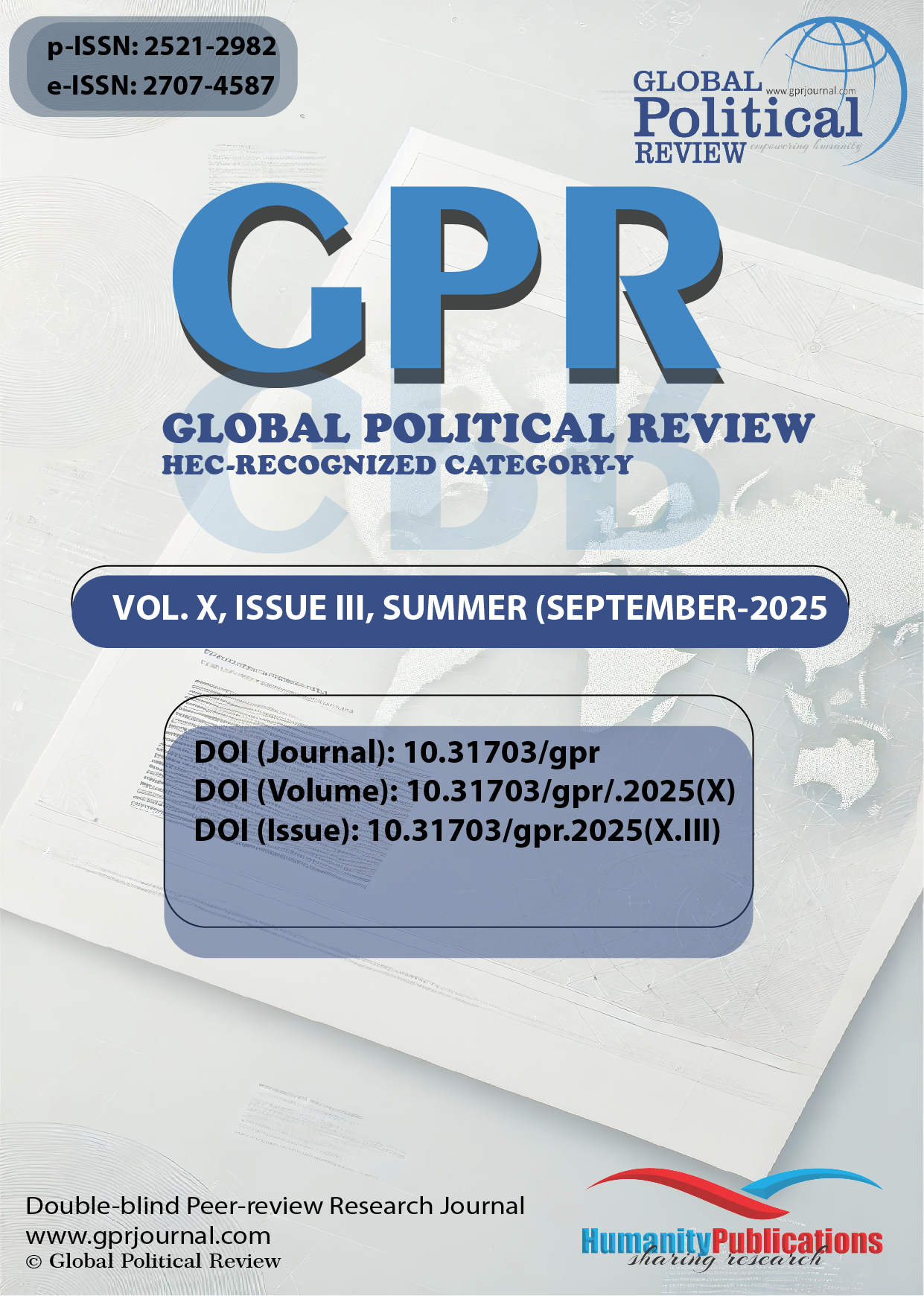 Volume X, Issue III (Summer 2025)
Volume X, Issue III (Summer 2025) 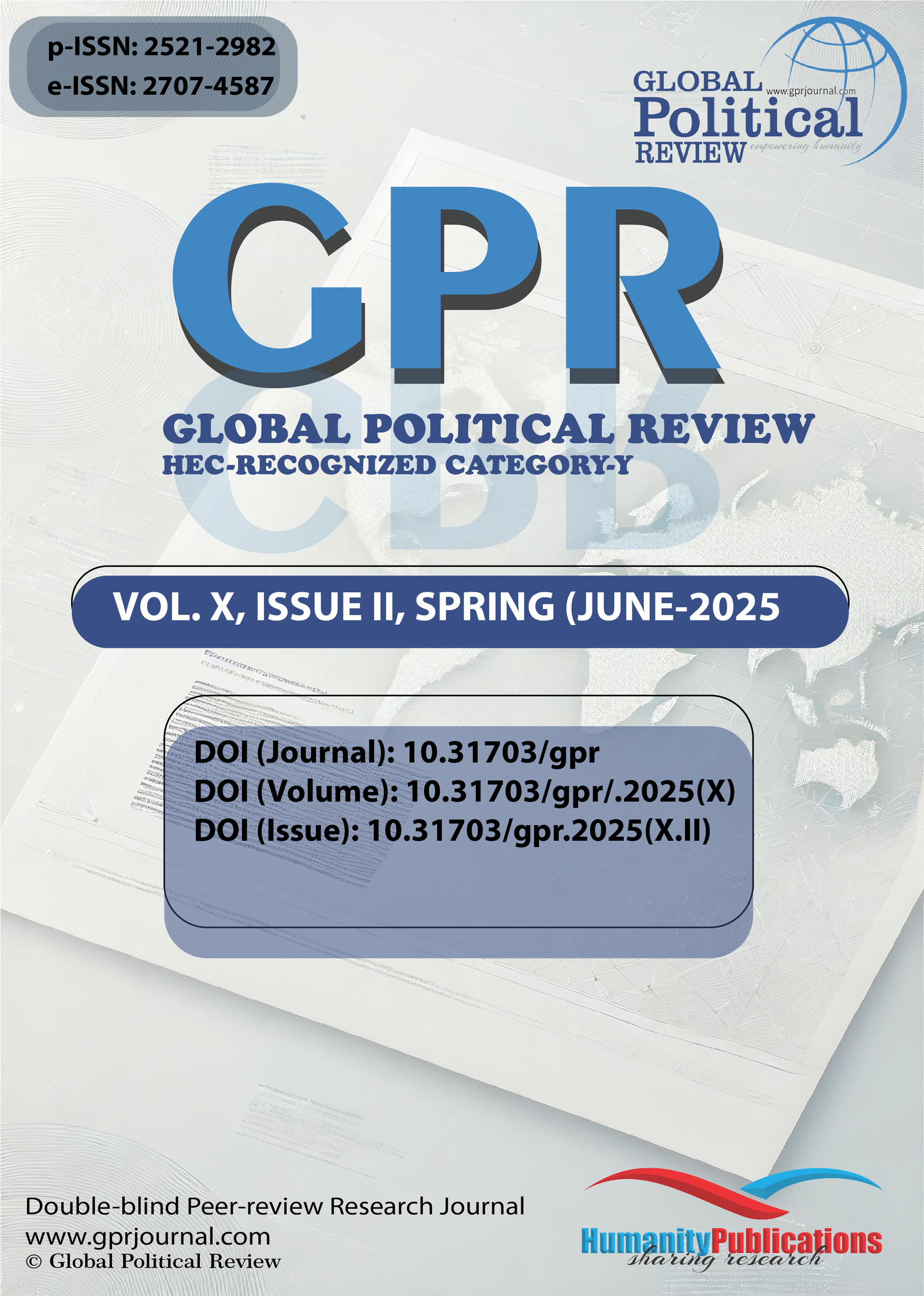 Volume X, Issue II (Spring 2025)
Volume X, Issue II (Spring 2025)  Volume X, Issue I (Winter 2025)
Volume X, Issue I (Winter 2025)  Volume IX, Issue IV (Fall 2024)
Volume IX, Issue IV (Fall 2024)  Volume IX, Issue III (Summer 2024)
Volume IX, Issue III (Summer 2024)  Volume IX, Issue II (Spring 2024)
Volume IX, Issue II (Spring 2024)  Volume IX, Issue I (Winter 2024)
Volume IX, Issue I (Winter 2024) 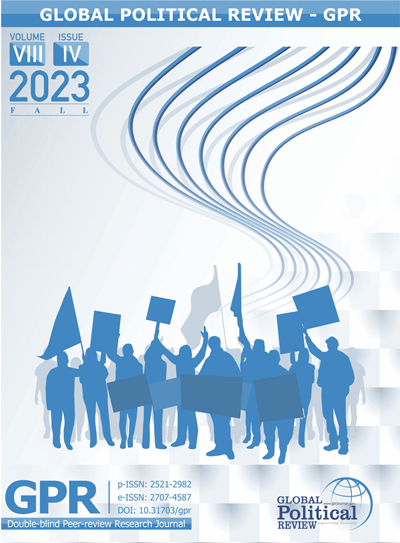 Volume VIII, Issue IV (Fall 2023)
Volume VIII, Issue IV (Fall 2023)  Volume VIII, Issue III (Summer 2023)
Volume VIII, Issue III (Summer 2023)  Volume VIII, Issue II (Spring 2023)
Volume VIII, Issue II (Spring 2023) 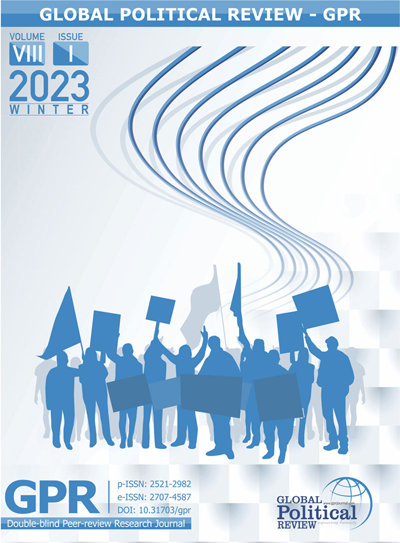 Volume VIII, Issue I (Winter 2023)
Volume VIII, Issue I (Winter 2023) 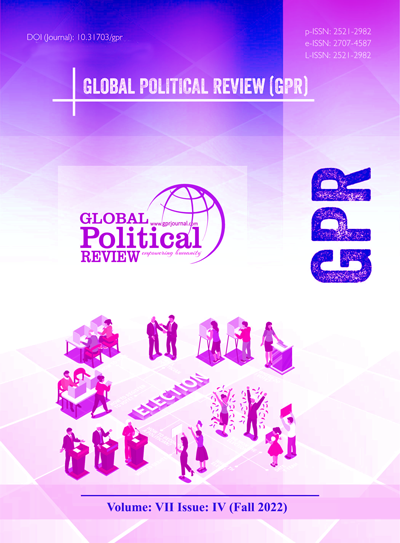 Volume VII, Issue IV (Fall 2022)
Volume VII, Issue IV (Fall 2022)  Volume VII, Issue III (Summer 2022)
Volume VII, Issue III (Summer 2022)  Volume VII, Issue II (Spring 2022)
Volume VII, Issue II (Spring 2022)  Volume VII, Issue I (Winter 2022)
Volume VII, Issue I (Winter 2022) 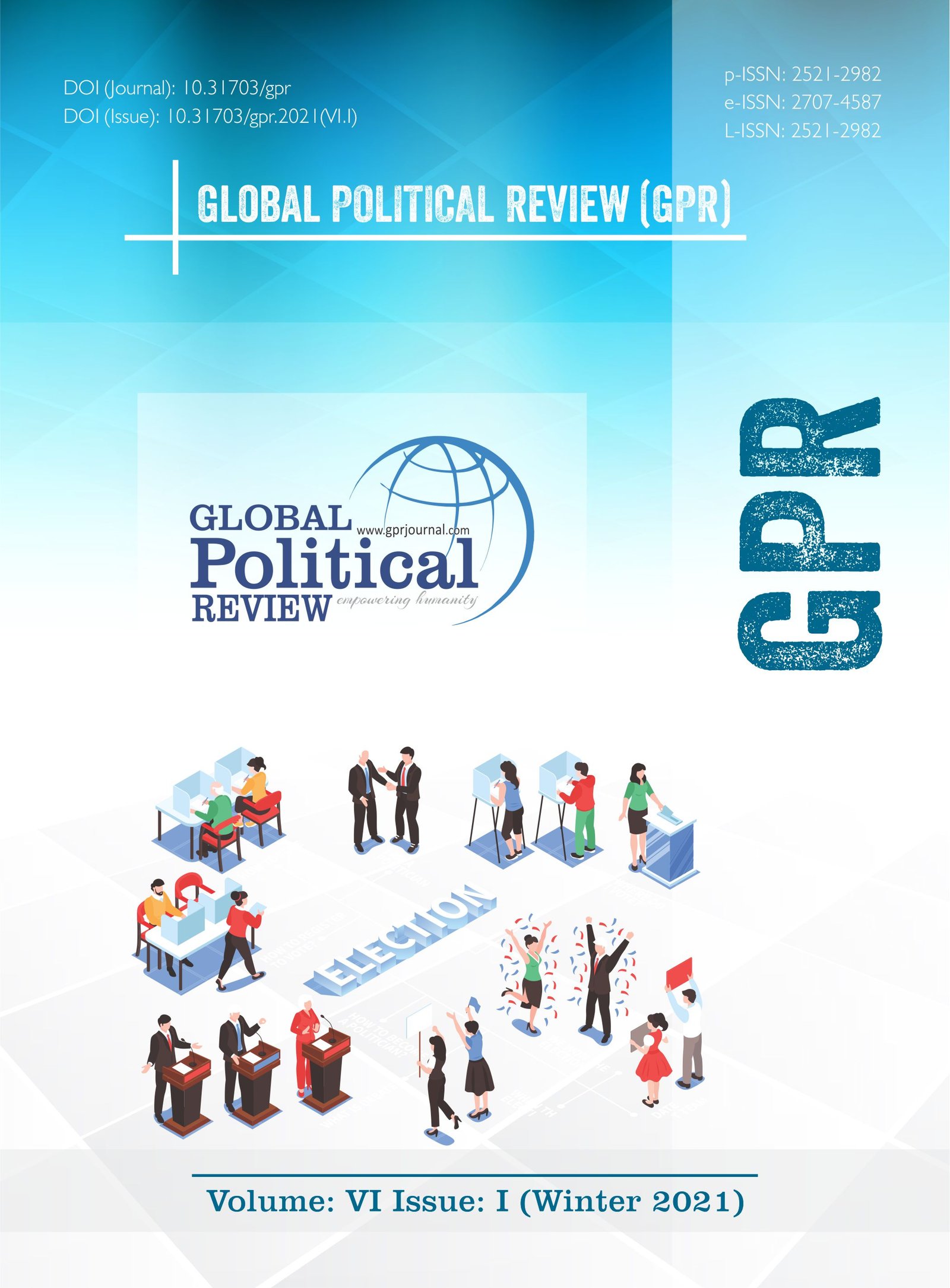 Volume VI, Issue IV (Fall 2021)
Volume VI, Issue IV (Fall 2021) 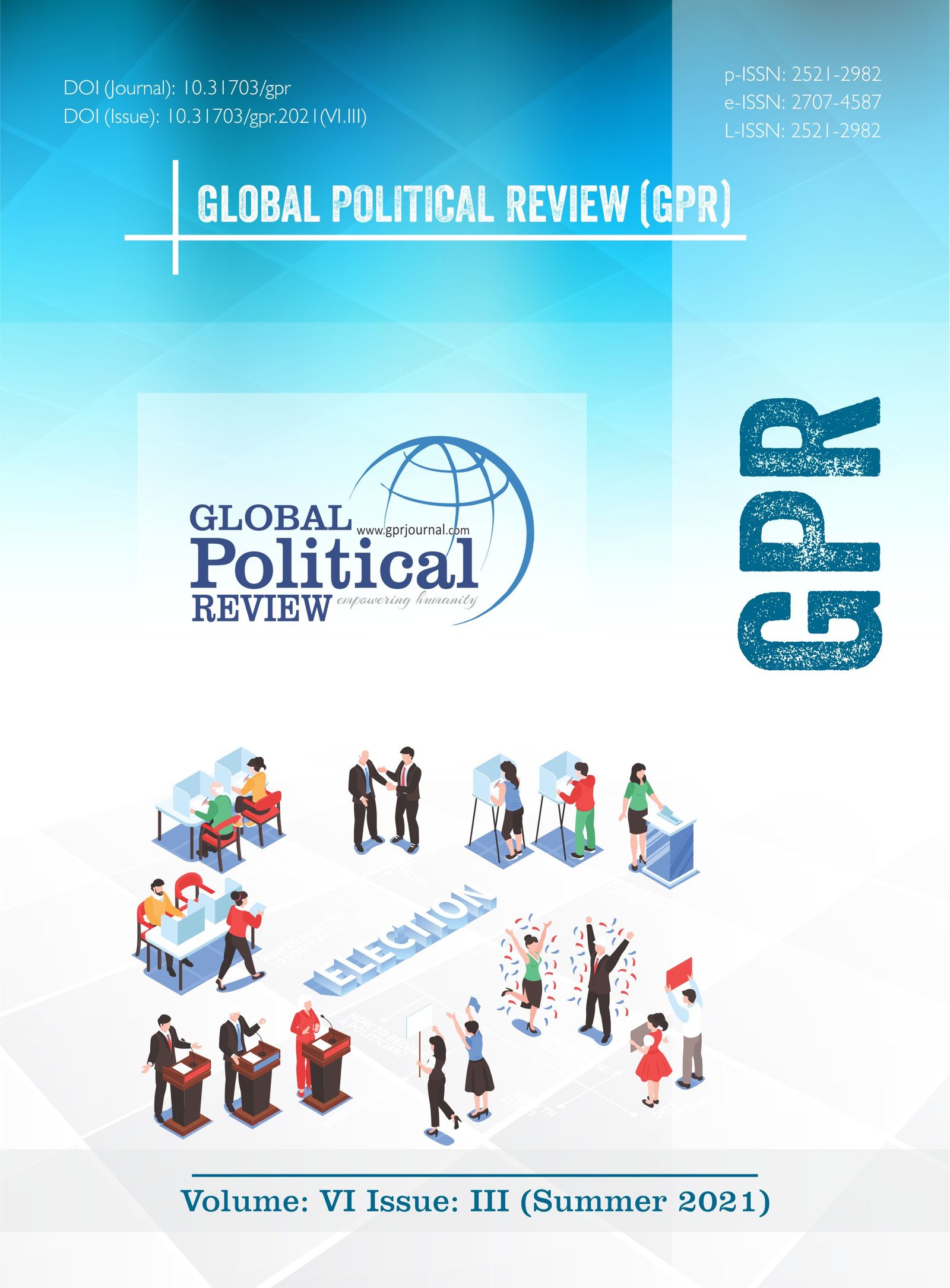 Volume VI, Issue III (Summer 2021)
Volume VI, Issue III (Summer 2021)  Volume VI, Issue II (Spring 2021)
Volume VI, Issue II (Spring 2021) 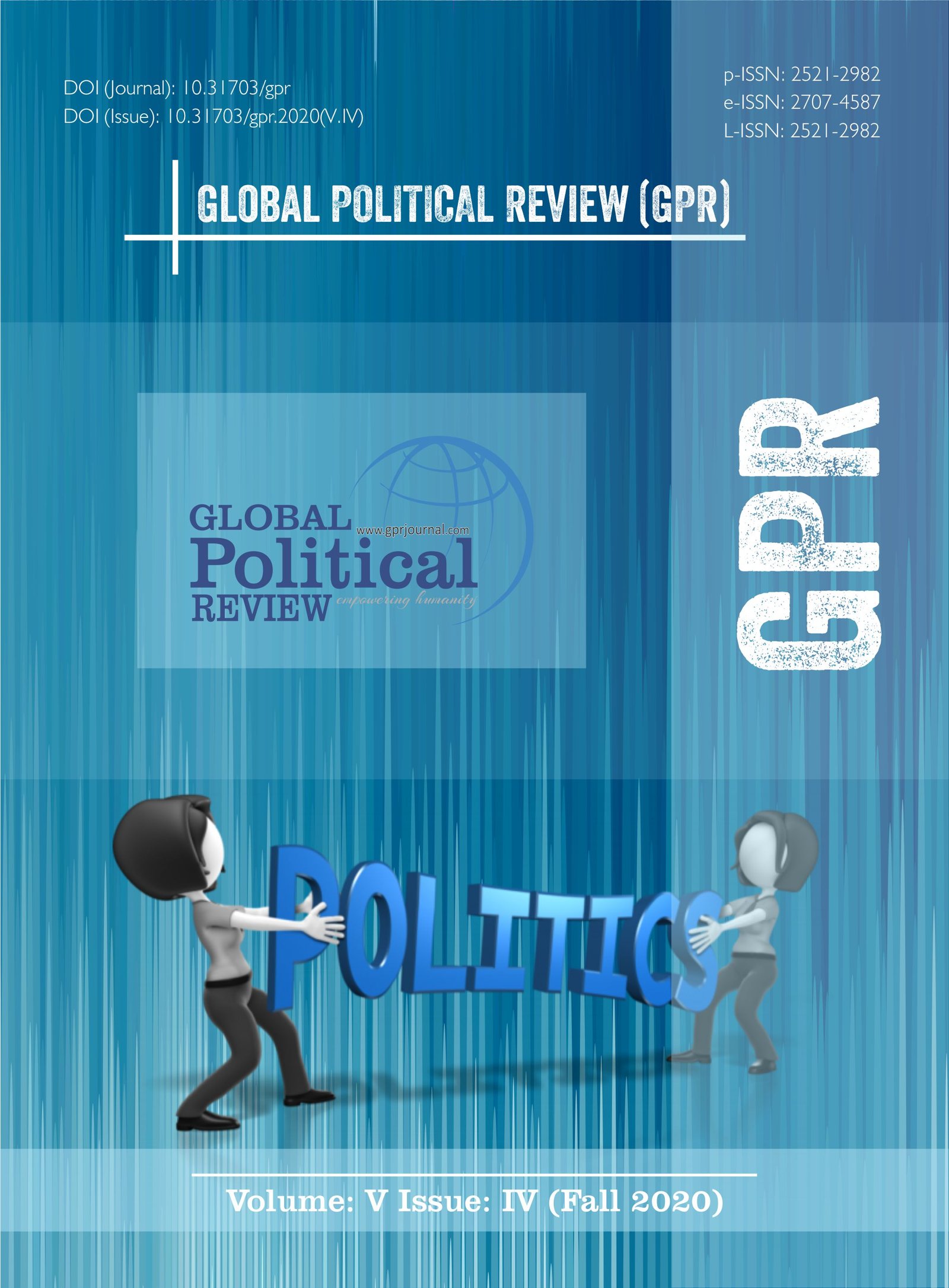 Volume V, Issue IV (Fall 2020)
Volume V, Issue IV (Fall 2020)  Volume V, Issue III (Summer 2020)
Volume V, Issue III (Summer 2020) 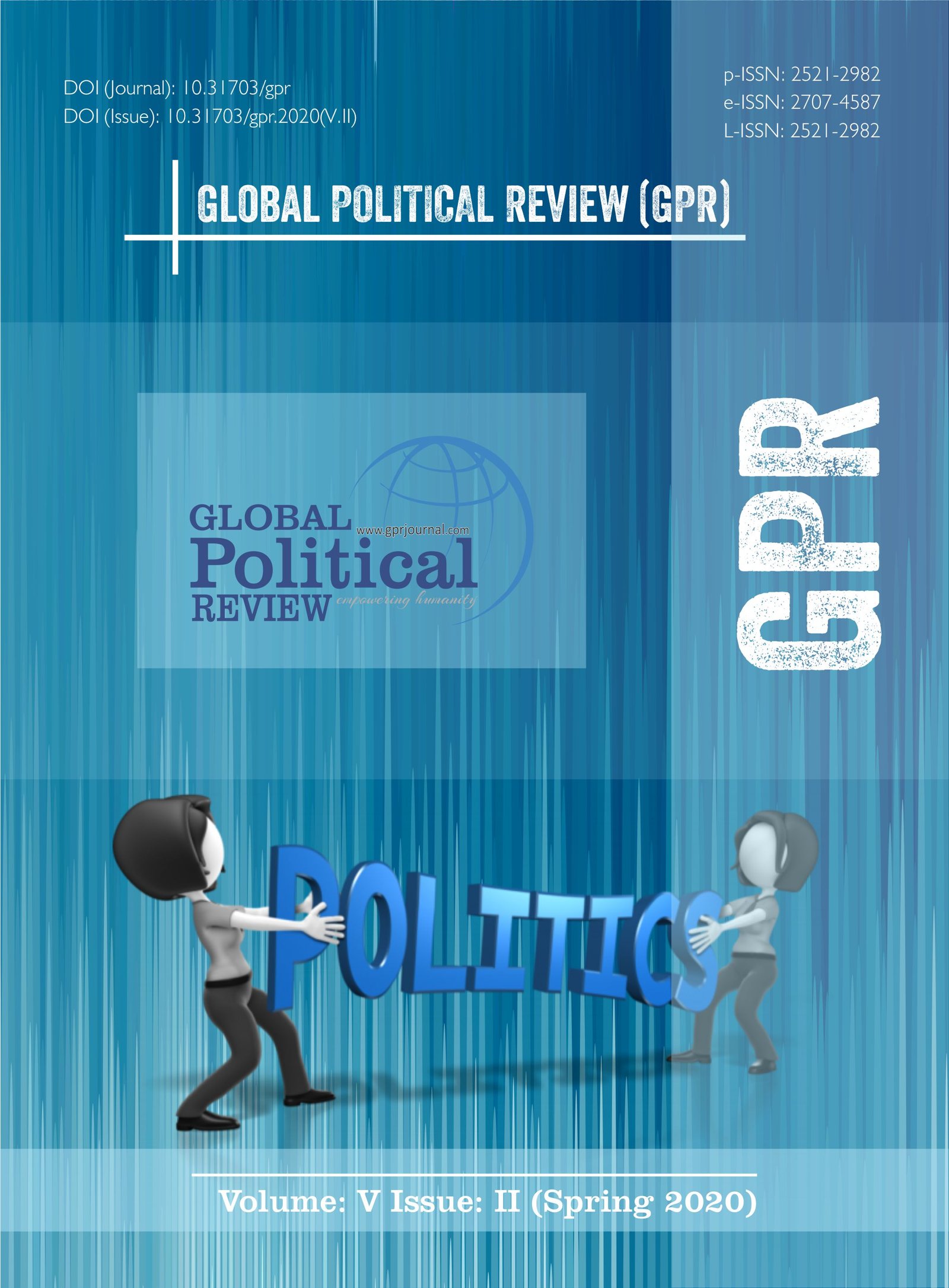 Volume V, Issue II (Spring 2020)
Volume V, Issue II (Spring 2020) 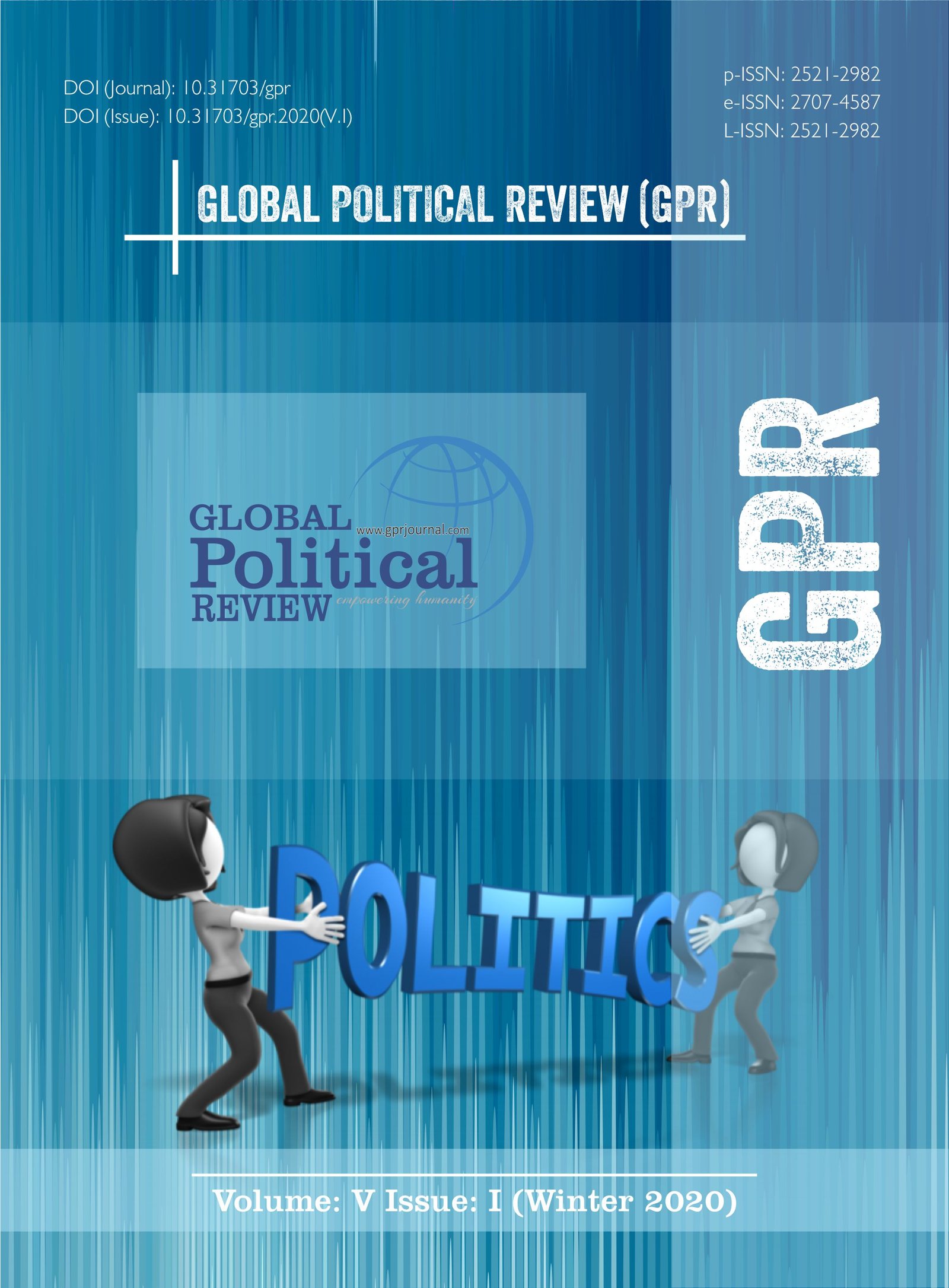 Volume V, Issue I (Winter 2020)
Volume V, Issue I (Winter 2020)  Volume IV, Issue IV (Fall 2019)
Volume IV, Issue IV (Fall 2019)  Volume IV, Issue III (Summer 2019)
Volume IV, Issue III (Summer 2019)  Volume IV, Issue II (Spring 2019)
Volume IV, Issue II (Spring 2019) 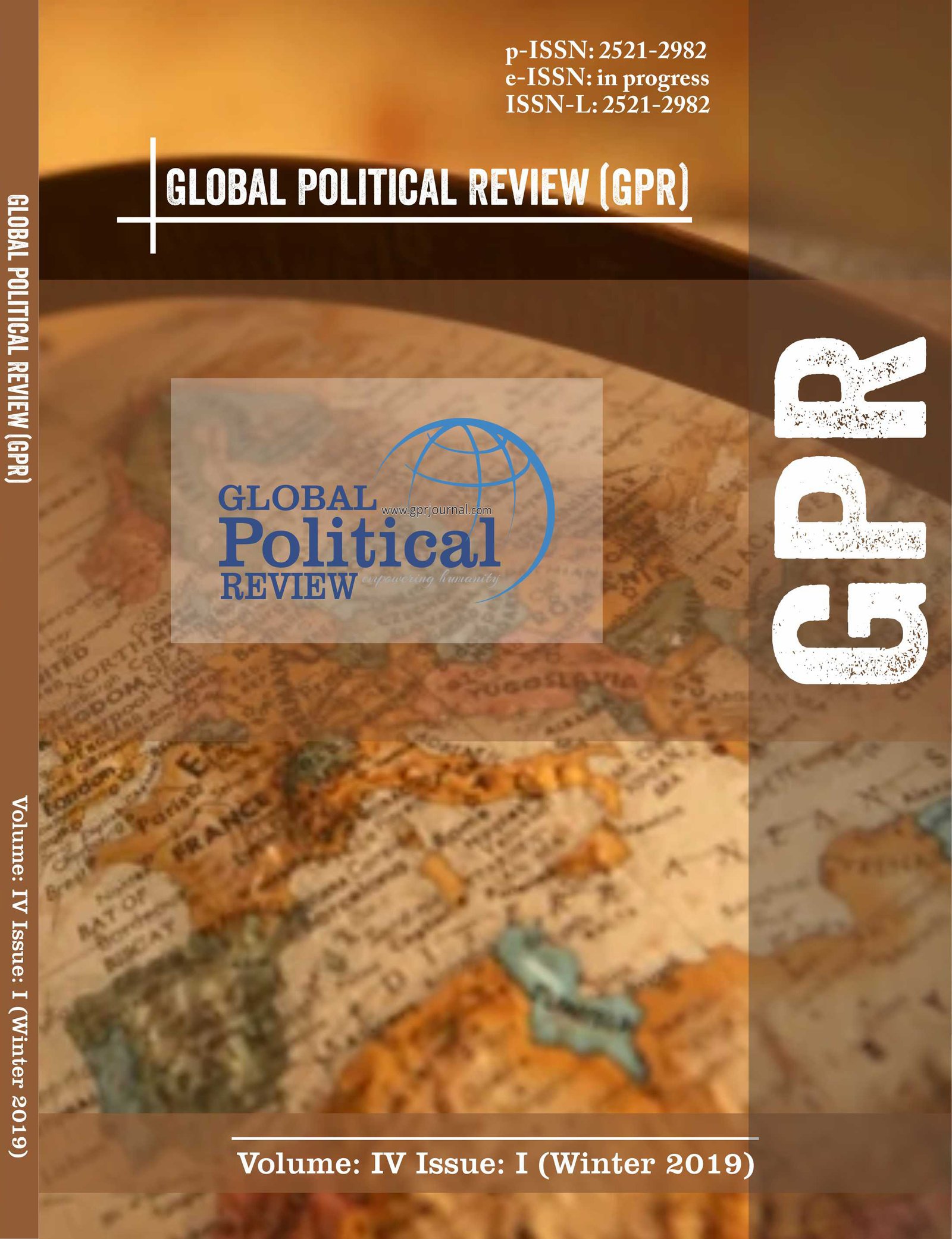 Volume IV, Issue I (Winter 2019)
Volume IV, Issue I (Winter 2019) 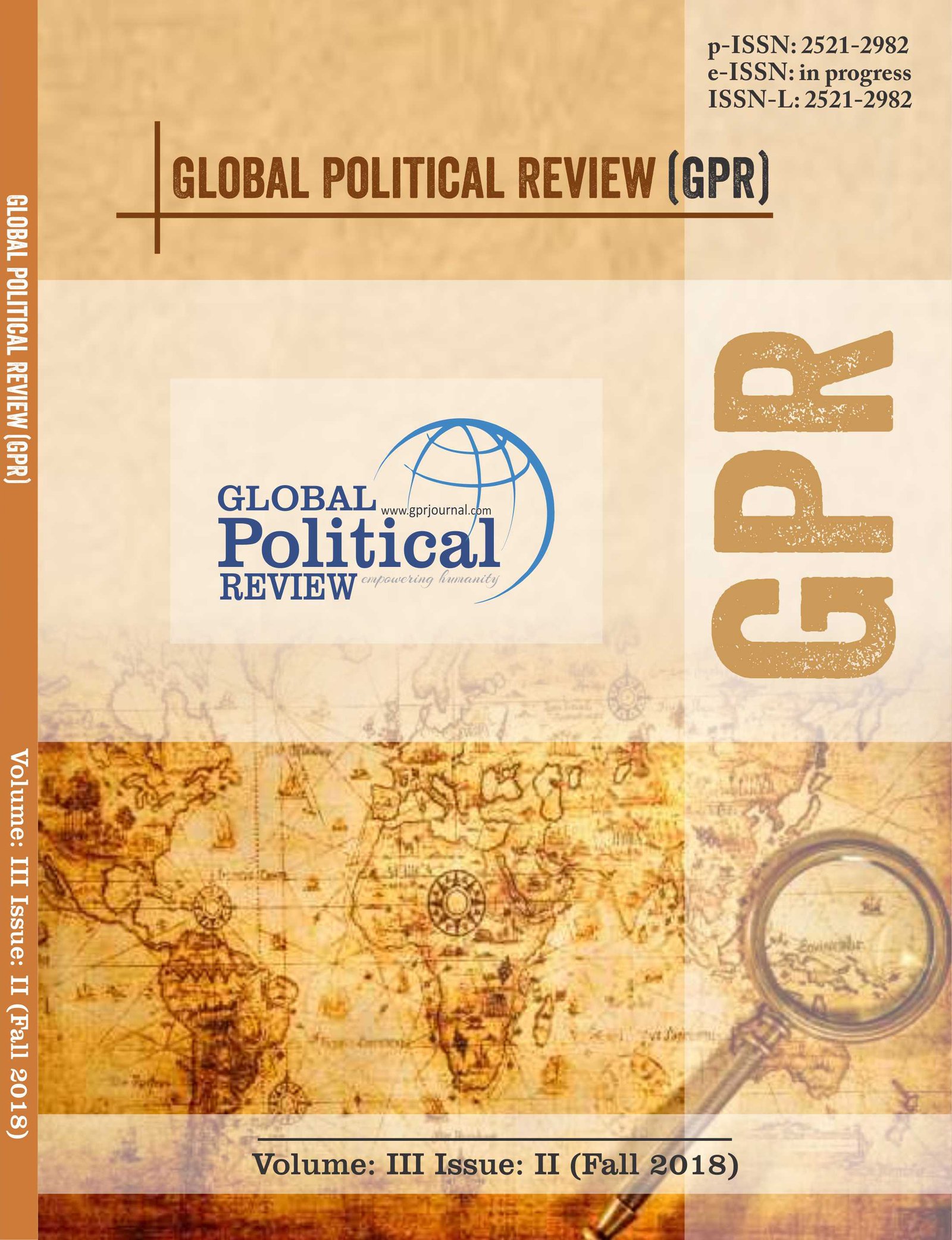 Volume III, Issue II (Fall 2018)
Volume III, Issue II (Fall 2018) 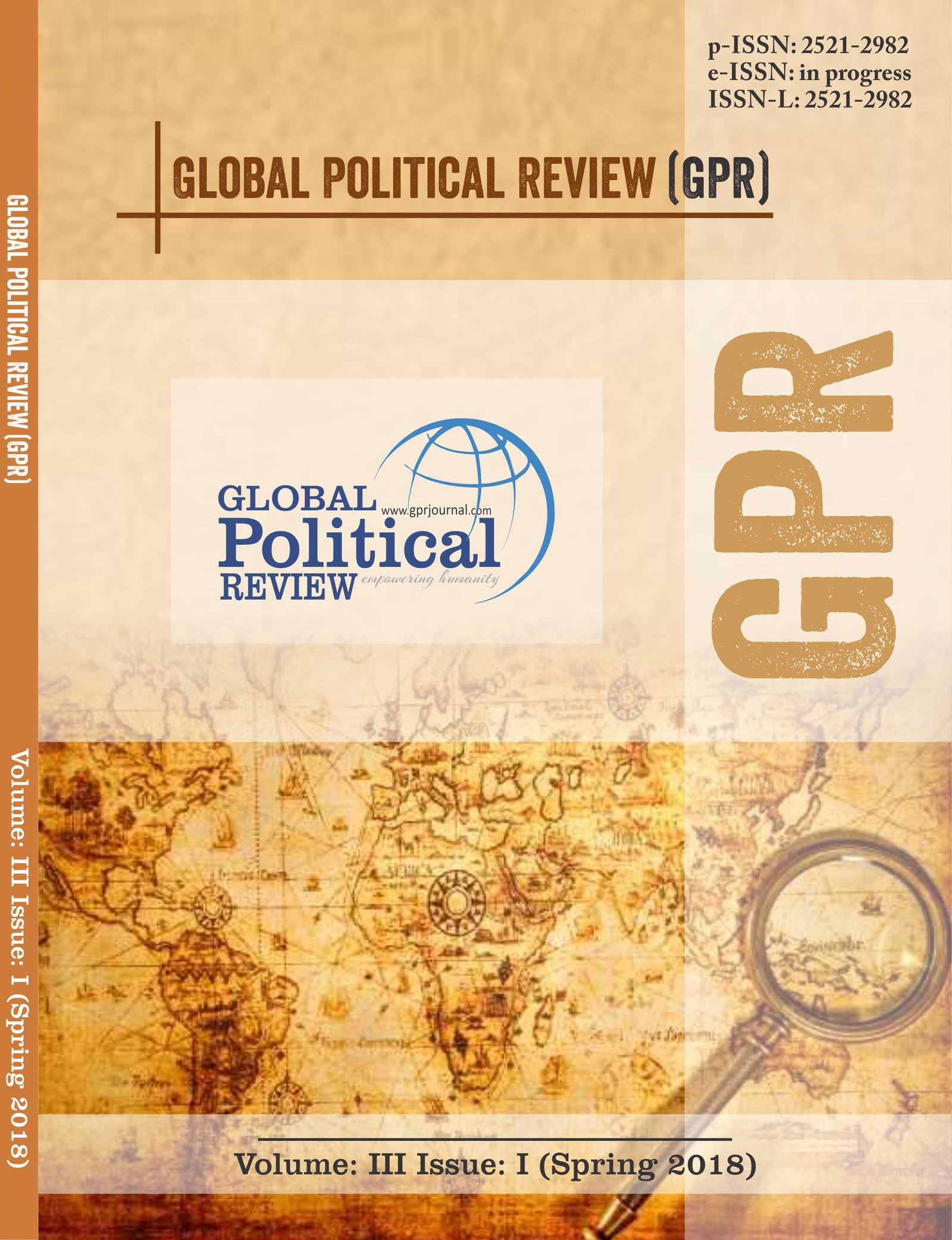 Volume III, Issue I (Spring 2018)
Volume III, Issue I (Spring 2018)  Volume II, Issue I (Fall 2017)
Volume II, Issue I (Fall 2017)  Volume I, Issue I (Fall 2016)
Volume I, Issue I (Fall 2016)